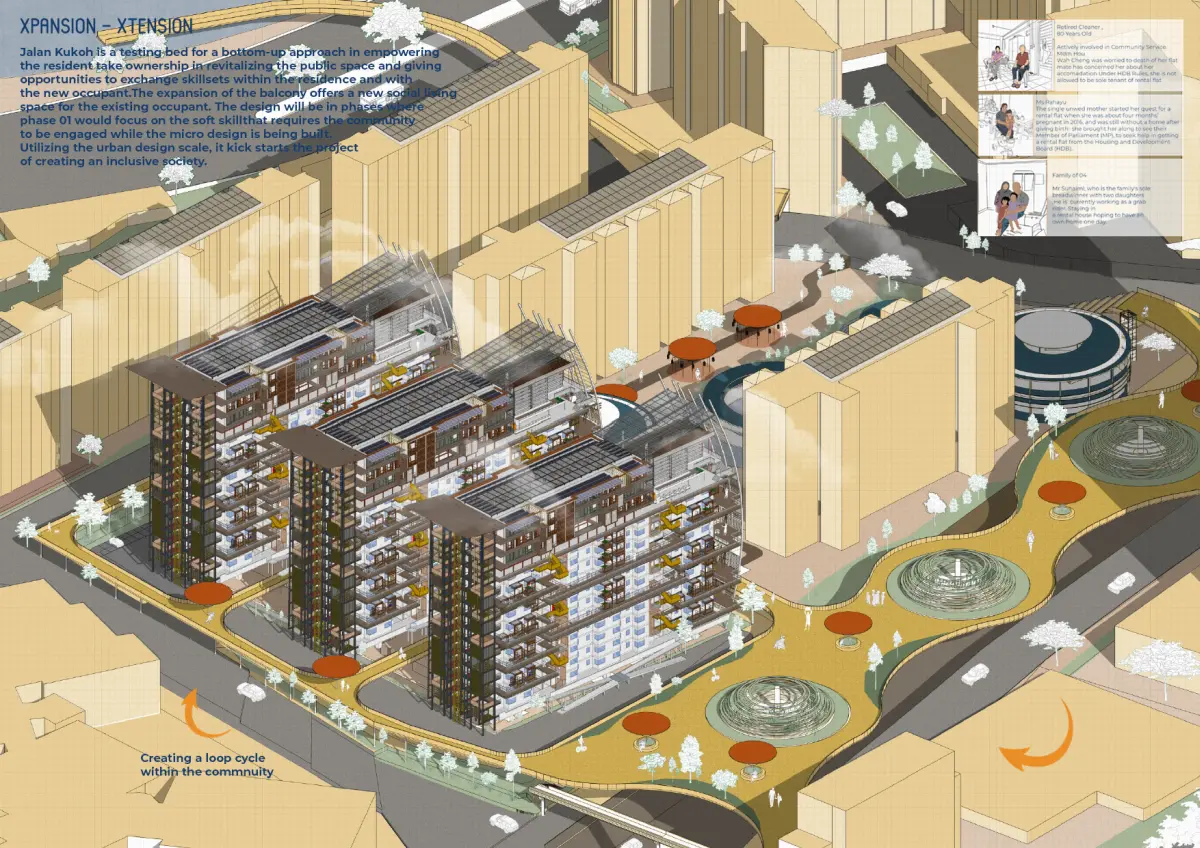
Xpansion - Xtension | Equality Exist
BY Nursafura Bte Mohamed Ali
SUPERVISED BY Assoc. Prof. Ružica Božović-Stamenović (Dr.)
STUDIO THEME ABOVE & BELOW - ALTERNATIVE URBAN NARRATIVES
Abstract
This thesis investigates rediscovering a new way of how architecture is being deployed to negotiate a space of living where an inclusivity society exists within a capitalist-driven country is celebrated. Singapore has observed a rapid progression in the economic growth of its city since its independence. “City in a garden” has become the portrayal of Singapore in the eyes of foreigners. Despite attempts to create a conflict-free environment by densifying the social landscape, it has revealed social tensions between the different social classes in Singapore. The existence of tension may not come within the general area such as home but more of the shared and public spaces such as playgrounds, and open courts between the owner-occupied and rental blocks. As a result, the aforementioned factors can influence how people perceive space—leveraging on creating a community that relies on each other. The strategy was to approach the architecture through adaptive reuse and introducing intergenerational housing within the rental houses. Growing a new target audience also creates a new way of living within the existing community. Utilizing various scales of house type as a tool to blur the social stratification. Jalan Kukoh is a testing bed for a bottom-up approach in empowering the resident to take ownership in revitalizing the public space and giving opportunities to exchange skillsets within the residence and with the new occupant. This place caters to students and those who want to rent an apartment The expansion of the balcony offers a new social living space for the existing occupant. The design will be in phases where phase 01 would focus on the soft skill
that requires the community to be engaged while the micro design is being built. Utilizing the urban design scale, it kick starts the project of creating an inclusive society.
Supervisor Comments
Potentials and limits of architecture as social mediator and agent of change is in the core of this thesis, focusing on issues of reinventing and reinterpreting the rental HDB housing paradigm. Social stratification and ensuing stigma are successfully confronted through introduction of empowered users’ concept and evolutionary design that allows for it. Architectural conception equalizes all residents through providing fair opportunities to have a voice, to share, to construct and creatively contribute to this liveable community. Gig economy, sustainability and environmentalism are translated into architectural language as tools that allow this new rental community concept to strive and flourish against all odds.
- Assoc. Prof. Ružica Božović-Stamenović (Dr.)